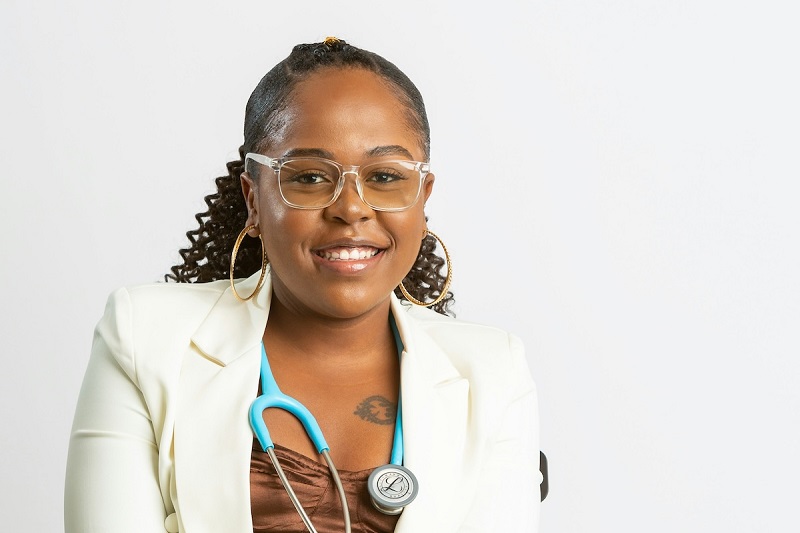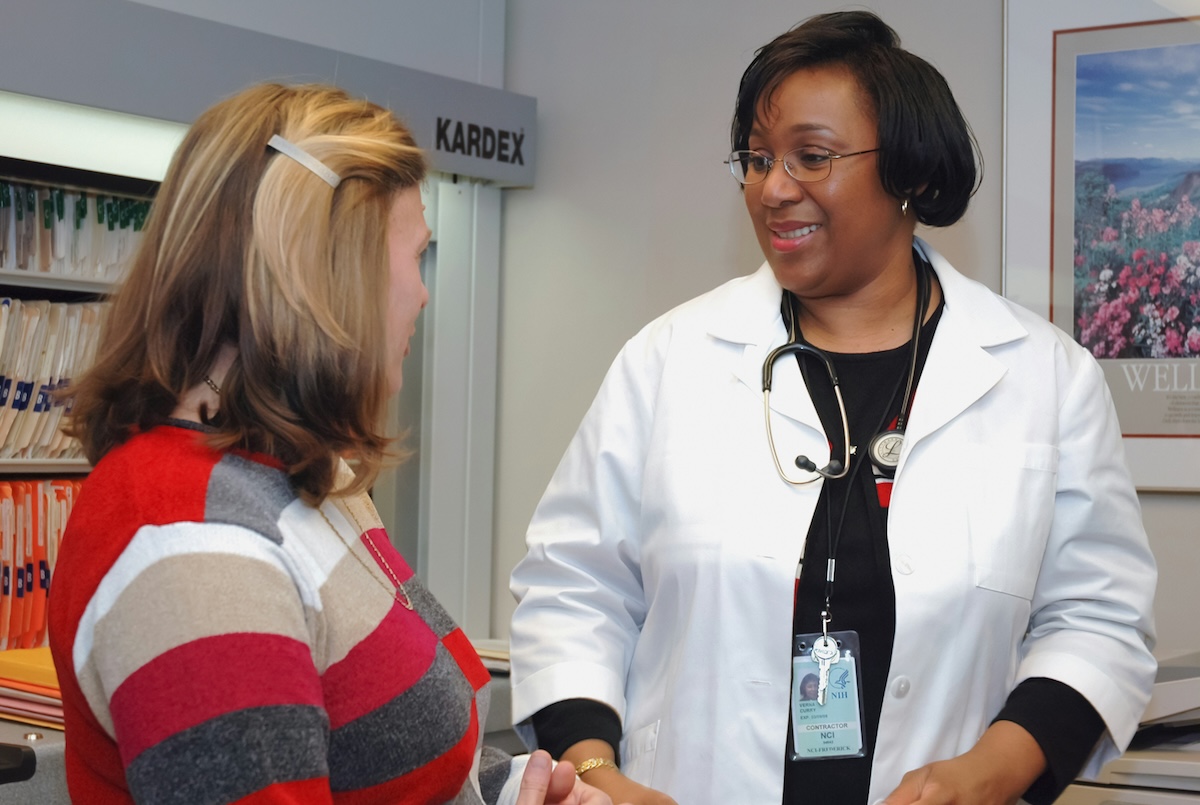People love to find a way to connect. This is what small talk is all about. And Americans love to connect over their careers. How often do we ask a new acquaintance, “What do you do?”? When you do something a little obscure like I do, the conversation often goes something like this: I am at an event — a party, a dinner, back-to-school night — and someone asks me what I do. “I am a physician,” I respond. “Oh! What kind?” they ask. “An endocrinologist,” I say. “Ohhh,” they say. Long pause. “I’m sorry, but what is an endocrinologist?”
This exchange has happened so often over the years that I automatically include a definition in my response now. Most people don’t have regular interactions with endocrinologists like they do with gynecologists and pediatricians. And (sadly) no one has made a TV series about us the way they have about the surgeons in Grey’s Anatomy. The result is that many people aren’t quite sure what we do.

If so many of the people I encounter in my daily life are unsure what exactly an endocrinologist is, it seems likely that you might be unsure too. You might be wondering, what is an endocrinologist, anyway, and what do they have to do with perimenopause?
What is an endocrinologist?
The endocrine system is responsible for making and regulating all the hormones in our body. When it is working well, the endocrine system goes unnoticed, but it is critical to a healthy, functioning body. It is also a key player in times of stress.
In simple terms, an endocrinologist is a physician who specializes in all the glands in our body and the hormones that those glands make.
More concretely, an endocrinologist has a detailed understanding of not only reproductive hormones but also thyroid hormone, growth hormone, and stress hormones. Metabolic functions like the regulation of blood sugar, weight, cholesterol, and bone density are also all under the control of hormones, and thus fall under the endocrinologist’s purview. Beyond the function of the hormones themselves, we seek to understand how all those hormones interact with one another — and they do interact with one another all the time — and how to manage problems that arise when the system breaks down.
In medicine, there are broad specialties like surgery, obstetrics and gynecology, and pediatrics. Within each specialty, there are subspecialists. For example, in obstetrics and gynecology, there are doctors who further specialize in fertility treatment, high-risk pregnancy, and cancers of the reproductive organs.
Endocrinology is a subspeciality of internal medicine. Your primary care doctor is likely trained in internal medicine, and other internal medicine subspecialties include heart, kidney, and lung specialists. Practically, what that means is that the doctor has completed a residency in the core specialty — in my case, internal medicine — and additional training, called a fellowship, in the subspecialty. All told, an endocrinologist has a total of five to six years of training after medical school.
During their fellowship, endocrinologists learn how to manage the most common endocrine disorders, but we also learn from super-specialized doctors who treat only one kind of endocrine disorder or focus on a single gland, like the adrenal gland or pituitary gland. And we learn from pediatric endocrinologists, reproductive endocrinologists, and surgeons who specialize in operating on glands. That doesn’t mean we will practice in all those areas, but this allows us to get a more detailed understanding of the diseases and treatments managed by the subspecialties adjacent to and overlapping with our own.
What does your typical day of seeing patients look like?
The typical general endocrine practice has been described as consisting of 40% patients with thyroid problems, 40% patients with diabetes, and 20% patients with everything else. My practice has always deviated significantly from that. Nearly 90% of my patients are women between the ages of 25 and 55. About half of them are referred by their PCP, but the other half are referred by their gynecologist or fertility specialist. As a result, I often discuss the issues and prescribe many of the treatments we cover every week in Hot Flash.
Many of my patients have traditional endocrine issues like hypothyroidism or diabetes. Some have more complex issues, such as a history of thyroid cancer or a benign tumor in their pituitary gland. But many of my patients — even those with other endocrine issues — also have changes in their reproductive hormones, such as polycystic ovary syndrome (PCOS) or perimenopause, that are causing symptoms including weight gain, acne, and disrupted sleep.
When I see patients in my office, I get so much information from just being in the room with them and from their body language. We talk about their symptoms and history, and I examine them. I check or review their blood work — there is a lot of blood work in a field where measuring hormone levels can be critical. Then we can discuss how to get them feeling better. My job is often as much about reassuring women that what they are feeling is normal as it is about figuring out how to best manage their symptoms.
Is there overlap between endocrinologists and gynecologists?
There is often overlap between various specialties. That is definitely the case with endocrinology and obstetrics/gynecology. In the literature, articles regarding women’s hormonal health might appear in Obstetrics & Gynecology, Menopause, or the Journal of Clinical Endocrinology & Metabolism. I keep tabs on them all.
OB-GYNs are specialists in the structure and function of the female reproductive system, including managing pregnancies and performing surgical procedures such as C-sections and hysterectomies. They typically have an excellent understanding of female reproductive hormones.
Endocrinologists are specialists in all hormones, including female reproductive hormones. We also have a detailed understanding of how all the various hormones interact with one another. Endocrinologists do not perform surgery or manage pregnancies.
In general, if your concern is structural, the gynecologist is your best bet. If your concern is hormonal, an endocrinologist may be better suited to help. But depending on your doctor’s comfort level, there are a lot of areas where an OB-GYN or an endocrinologist might be able to help you, including managing the symptoms of perimenopause and menopause, PCOS, and diseases like hypothyroidism or diabetes during pregnancy.
How do I know if I need to see an endocrinologist?
The first time I see a patient, they often have a handful of symptoms — irregular or absent periods, sleep disruption, temperature dysregulation, unexplained weight gain, fatigue, acne, or hair loss — but no specific diagnosis. They have often seen other doctors who have performed some blood work and have seen signs of a hormone problem. Those doctors have sent them my way. Occasionally, after bouncing around to different practitioners, patients land in my office frustrated and feeling terrible.
There are only about 9,000 practicing endocrinologists in the U.S. Even in cities with doctors on every block, like New York, patients can wait months to see one. In underserved areas, waits to see an endocrinologist can be many months long. As a result, is it always a good idea to start by raising concerns that may be hormone-related — such as menopause symptoms, unexplained weight gain, or irregular periods — with your gynecologist or PCP. They can perform some initial tests and refer you to an endocrinologist if needed. If you feel that those doctors are not addressing your concerns adequately, it is reasonable to request a second opinion or a referral to a specialist.
Most women will never see an endocrinologist, but I would argue that gaining a greater understanding of your hormonal health will help you rest assured that much of what you are experiencing is normal, and make you a more effective self-advocate if issues with your hormonal health do arise. My goal for my patients and for you is to have better conversations about your hormonal health with all your doctors.
Community Guidelines
















Log in